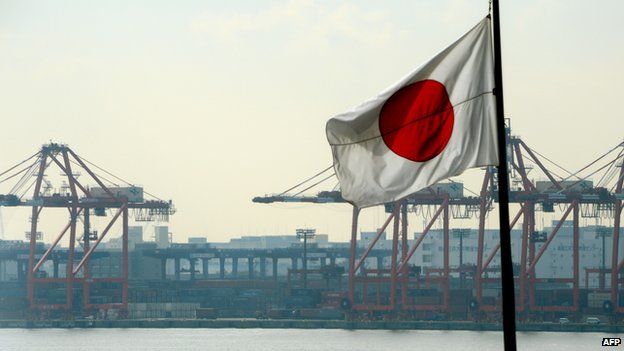Japan Economy Contracts in Q2
Consumer spending and exports were the biggest contributors to the shrinking of the economy.
The contraction in April-June represented a 0.4 percent decrease from the previous quarter, when the economy expanded at a robust 3.9 percent annual pace.
Still, the figures published by the Cabinet Office came in slightly better than market expectations for a fall of 0.5 per cent, or a 1.8 per cent annualised drop.
Private consumption, which accounts for about 60 percent of the Asian country’s GDP, fell 0.8 percent from the previous quarter while exports dropped 4.4 percent.
The downturn follows a stronger-than-expected expansion in the first quarter driven by a pickup in capital spending, but as more tepid second-quarter data rolled in some economists warned that the recovery would be short-lived.
But two years after Abenomics was launched, Japan’s economy is still not on track. Growth rebounded this year, only to slow again as exports and consumption remained disappointingly weak.
Japan’s economy shrank in the second quarter of the year, marking a setback for the governments’s reform policy.
But economists have already sharply cut their growth forecasts for the current fiscal year and expect the BOJ to do so too when it reviews its long-term projections in October.
The Bank of Japan, whose lavish monetary easing is pumping trillions of yen (hundreds of billions of dollars) of cash into the economy through purchases of government bonds and other assets, has persisted in forecasting a rebound later in the year.
BoJ chief Haruhiko Kuroda has pushed back a timeline for hitting a 2.0 per cent inflation target, a cornerstone of Abenomics, although he insists healthy price rises are around the corner.
Japan “need not worry” about China’s currency devaluation of the yuan because it can always offset the effects by easing monetary policy, said Koichi Hamada, an adviser to Abe.
Japanese companies reported an average increase in net profit of 42 percent in the April-June quarter from a year earlier.
Governor Kuroda said last month he didn’t think Japan’s slowdown would continue from July, and earlier this month said recent weakness in industrial production and exports would be temporary.








